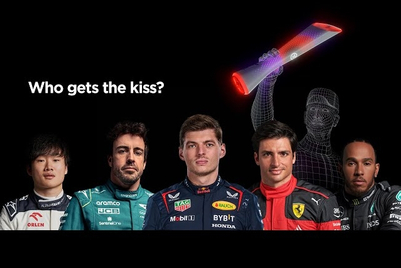
Lenovo has introduced online sales channels in more than 15 countries worldwide. Last year, it launched operations in India and South Korea after its successful online presence in Japan.
“The broader Asian market is now adopting the Internet much more aggressively,” Sivadasan said. “However, there are barriers that affect online purchase, such as regulatory hurdles, payment issues, customer data-related problems, privacy concerns, logistics and delivery issues.”
In the meantime, Lenovo is using its e-commerce platform to build brand preference and strengthen brand perception. “The key is to ensure that the experience we provide to our customers around online purchase is seamless, intuitive and uncomplicated,” Sivadasan noted.
This means clarity and simplicity. “Every time we redesign our website, our brand perception, pre-exposure and post-exposure, are substantially different,” Sivadasan pointed out. “This means customers' or prospective customers' perception of Lenovo’s brand increases substantially once they experience the site’s capabilities, features and overall experience,” he added, citing an industry survey that rated the brand as two-times better than its nearest competitor.
Mobile optimisation is critical for the PC maker. “Customers want and expect a seamless experience across their devices and domains and brands risk tarnishing their brand perception if they are not focused on ensuring that these interactions are seamless,” he added. Lenovo recently introduced responsive design for its websites across 60 countries. This includes an enhanced menu structure and a cleaner format overall. Sivadasan claims that consumers are reacting positively, and the mobile optimised sites have seen increased engagement and usage.
According to Sivadasan, the profile of the online buyer is changing. However, on average, most come from a higher income and educational background. As for the products, consumers tend to purchase low-value products online and pick up high-ticket items at retail stores.
Sivadasan, who manages the firm’s B2B and B2C web sales and marketing and Lenovo’s overall digital and social strategy, says digital has started to play a central role in its campaign initiatives. Recent product launches for the Yoga Tablet, Vibe phone and the Thinkpad X1 Carbon have all had digital promotions. Several other campaigns are increasingly focused on user-generated content.
Digital marketing allows Lenovo to target, segment, measure and optimise tactics better than non-digital activities. The company has put online tools in place that enable it to track marketing spend against outcomes.
The company sees explosive growth in video consumption. “More and more we see the importance of content formats that are easily shareable”, Sivadasan said. Content is the currency for audience engagement. Customers are interested in products and services that help solve their problems and they are willing to engage in a dialogue on the “how” and “why”.
“With brands struggling to break through, digital and social media offer access to a vast number of people, in scalable formats—that is, if we connect with them on their terms and not ours.”


.jpg&h=334&w=500&q=100&v=20250320&c=1)



.png&h=334&w=500&q=100&v=20250320&c=1)



.png&h=334&w=500&q=100&v=20250320&c=1)







.png&h=268&w=401&q=100&v=20250320&c=1)
